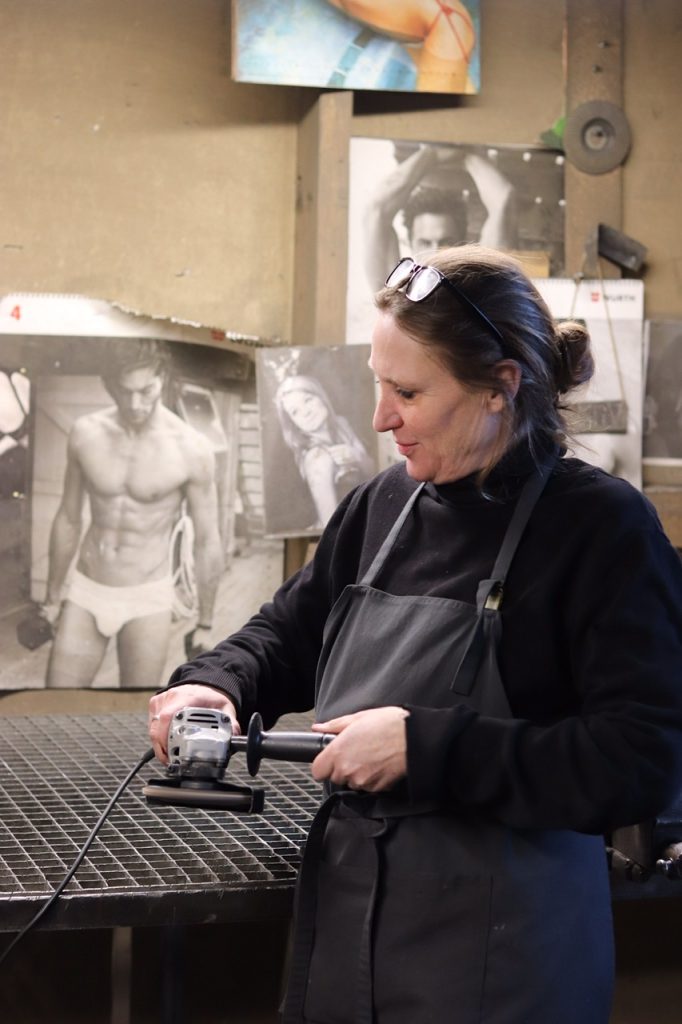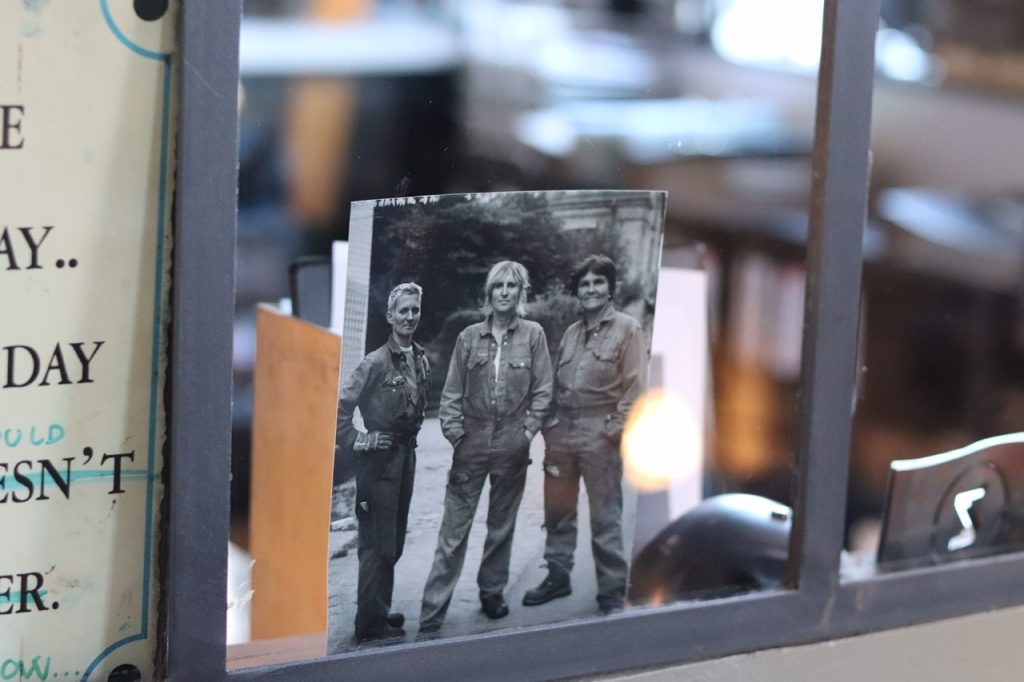Charlotte Steen runs the womens blacksmith shop in Christiania, located in a red brick building in the heart of the community. There she welcomes women into a profession that has traditionally been closed for them.
On tables in her studio stand tall, square vases in metal, with sculptures of red poppies inside, next to a glass vase with live ones. The womens blacksmith used to take up only a corner of the big building.
“There was a little workshop over there, with two women,” Charlotte Steen says and point over to a corner. The two women were making things for the bikes and for the stores in Christiania.
“They were making all kinds of things for building a town, because it was what Christiania was. It was a group of people who wants to build a town,” Charlotte Steen says, “But a special town.”
Charlotte Steen has good memories of Christiania ever since she first came here, as a ten year old, going with a friend to visit, “I remember when growing up, people were talking to me like we were on the same level. It was that feeling,” she says, “It was quite fantastic.”
She then moved to Christiania herself, in the eighties, when a lot of the community took shape. It established itself as different from the rest of Denmark, not following the rules and legislation laid down by the state. Charlotte Steen learned to be a blacksmith from the two women who worked here before, and simply by doing, and ended up taking over and expanding the shop with her two companions.
“And then we started to teach other women,” she says. When she herself wanted to become a blacksmith, the places where you would learn didn’t take girls.
“They said you know, if there comes a girl, all the boys, they will be so crazy, they can’t work,” she says. She remembers walking into other blacksmiths and them shouting things at her, “All the men were used to have this place, without girls. So when they saw a girl..” she laughs about it. But it has also changed now, at least partly.
“Today it’s different, a lot of blacksmiths want the girls, and they say they’re so good.”

The wild garden
Charlotte Steens describes the style of her furniture and sculptures as cozy minimalist.
“I’m not this castle like, old style. I’m maybe more modern, I would say. Simple. I’m not so romantic,” she says, “But I also have the cozy style. I like the wild garden. I’m not into the too nice flowers. I like the wild garden and the rough houses.”

Christiania is different now from when they started. Charlotte Steen thinks it’s because people were growing older, and they wanted to secure a good future for their kids and make sure they had the state support. The culture around the drugs is also different.
“The pushers came, the problems started there, many many years ago,” she says, about the way drugs are sold on the Pusher street, the main street of Christiania. “In that way, we are kind of two places,” she says, “And they know what I think, but they also know I don’t call the police about it. I live my life and they live their life. It’s a part of Copenhagen now.”
And her business is still going well, she thinks. “There’s one thing I can feel right now, that’s been changing. And it’s that people want to buy more quality,” she says, “They ask if it’s made here, is it made by real hands? They want something that is produced where they know people will be paid good. Now, quality matters more,” Charlotte Steen says, “They want something with a good story.”
Read more of our coverage on women’s rights: